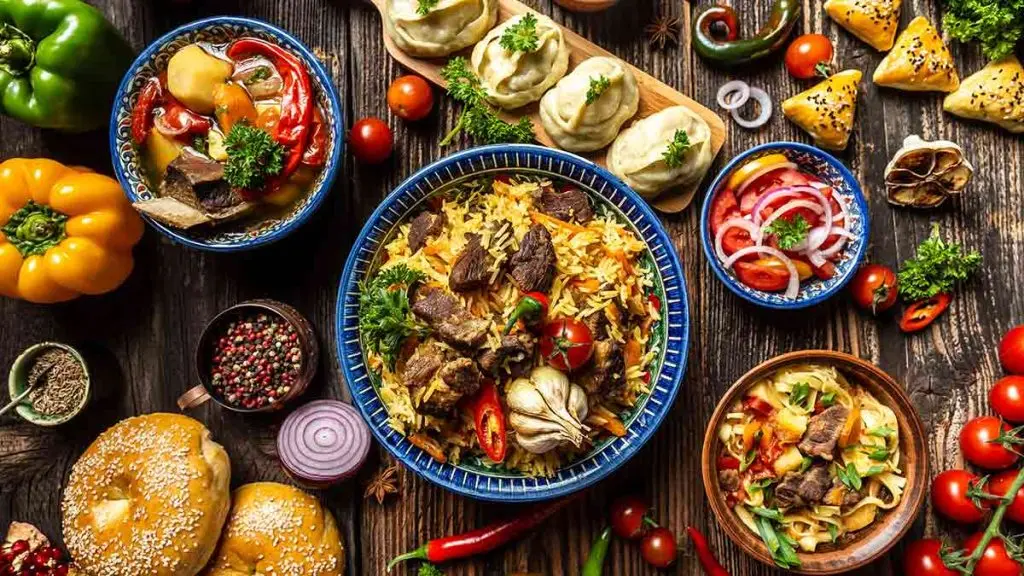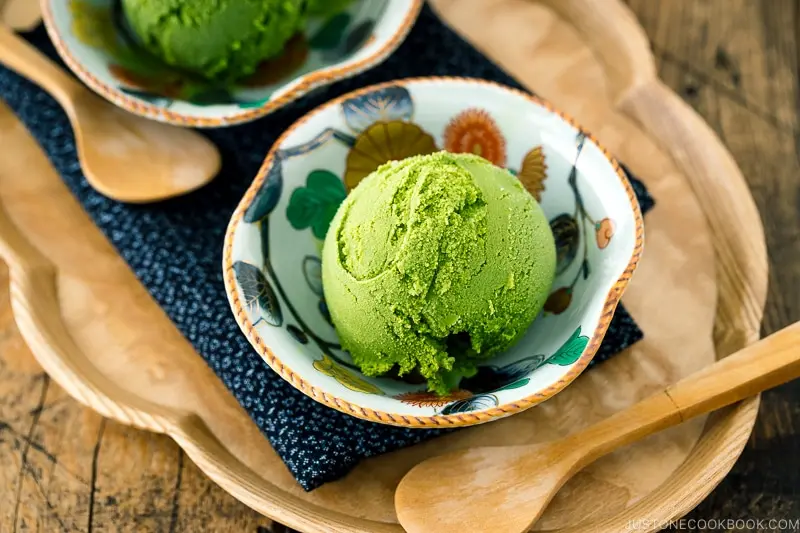Follow the recipe exactly

If you're relatively new to cooking or looking to refine your skills, Ina Garten offers a straightforward tip to boost your success in the kitchen: when trying a recipe for the first time, stick to it exactly as written.
Many of us have found ourselves questioning the necessity of a specific ingredient or wanting to add extra of our favorite spice. However, Garten recommends against this, particularly if you're unfamiliar with the dish. The primary reason is to understand the intended flavor profile before making any alterations. Experienced chefs design their recipes with a careful balance of flavors and precise measurements, so deviating from their guidance right away can be counterproductive.
After you've prepared the recipe at least once, you can start experimenting with ingredient substitutions or additions to cater to your taste. However, it's best to make only one change at a time; otherwise, you won't know which modification affected the dish if it doesn't turn out as expected.
Garten herself adheres to this principle, preferring to follow the recipe closely rather than relying on guesswork and improvisation. If it's a good practice for the Barefoot Contessa, it's certainly worth considering for us as well.
Choose dishes you can prepare in advance when entertaining
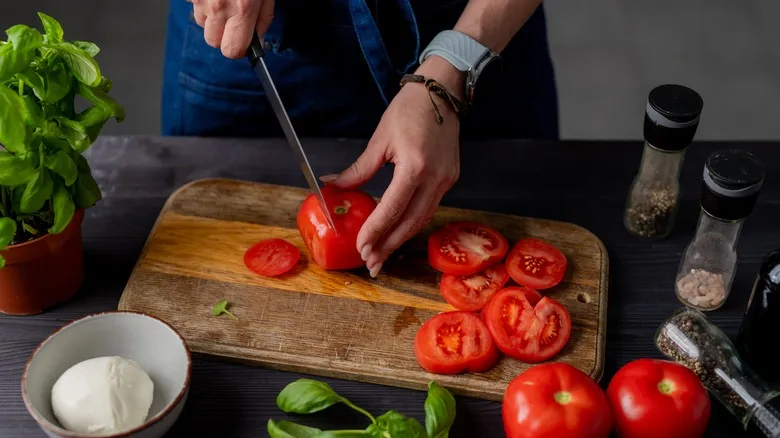
If you've been experimenting in the kitchen for some time, you might be gearing up for your first dinner party or inviting family over for a special meal. While this can certainly be an enjoyable event, it can also bring a fair amount of stress, and the magnitude of the task may not fully register until you're in the kitchen, sweating and juggling multiple pots, all while wondering if you'll ever get a moment to chat with your guests.
Ina Garten offers an excellent solution to the challenge of multitasking during dinner parties: opt for dishes that can be prepared ahead of time. The most successful gatherings feature a host who remains calm, organized, and can spend quality time with their guests, which is far more valuable than serving intricate dishes that require last-minute cooking.
Garten provides clear guidance on how to be as prepared as possible: serve four different types of dishes. One should be at room temperature, eliminating the need for reheating; another should be fully cooked in advance, ideally the day before; a third should be prepared in the oven; and the last one should be made on the stovetop.
By following this approach, you won't have to cram your oven or fit four large pots on the stove, yet you'll still be able to present four dishes or courses to your guests. The best part? You'll feel much more at ease, and your guests will enjoy the experience even more.
Purchase seasonal ingredients
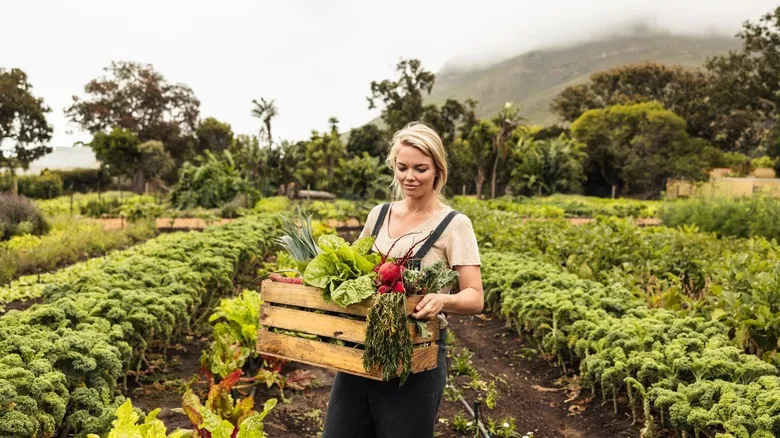
Embracing seasonal eating is a common recommendation, yet it can easily slip our minds while shopping, especially if we aren't aware of its advantages. Ina Garten suggests incorporating seasonal ingredients whenever possible, and opting for locally sourced items when available.
This approach involves selecting ingredients that are currently in season in your region. For those in the Northern Hemisphere, this means enjoying berries at the peak of summer and indulging in pumpkins and apples during the fall. While this can vary with climate, as a general guideline, purchasing strawberries in the middle of winter often indicates they have been imported from afar.
Choosing seasonal produce ensures you enjoy fruits and vegetables at their optimal flavor, making it simpler for home cooks to prepare delightful dishes. Garten champions the idea of keeping recipes straightforward and allowing the ingredients to shine, which is much easier when they are bursting with flavor. Additionally, your grocery expenses will likely decrease, as local, seasonal produce requires less transportation to reach store shelves.
Another less obvious advantage of seasonal produce is its enhanced nutrient content. When imported items spend a long time in transit, their nutrient levels can diminish rapidly, meaning that by the time you consume them, you may not be receiving the health benefits you expected. In contrast, local, seasonal produce retains the vitamins and minerals that contribute to its healthfulness. By prioritizing seasonal produce, you can enhance the flavor, nutrition, and cost-effectiveness of your meals.
Keep your meals simple
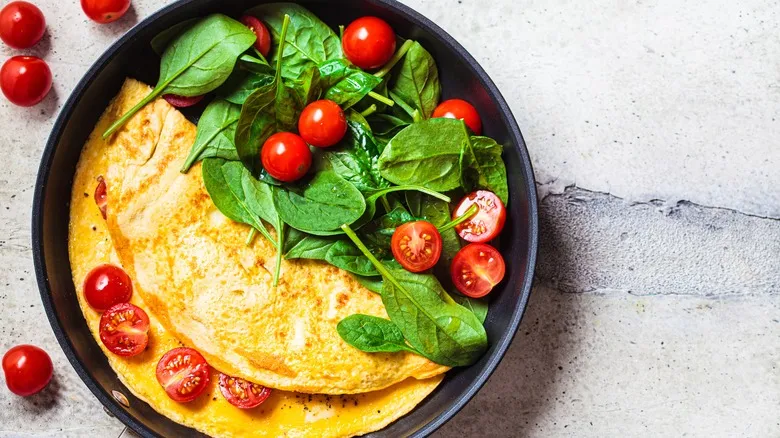
When you tune in to chefs like Alain Ducasse and Heston Blumenthal on a cooking show, it’s easy to feel inspired to whip up an elaborate meal in your own kitchen. However, more often than not, sticking to simple cooking methods leads to the most delicious and impressive dishes, rather than tackling a complicated recipe that consumes hours of your time, only to leave you feeling let down by the outcome. Ina Garten advocates for simplicity in the kitchen, allowing high-quality ingredients to shine.
Opting for straightforward meals can also help you save money and alleviate the stress associated with cooking. Complicated recipes frequently require specialized tools that will likely end up collecting dust in your cupboard. In contrast, a perfectly seasoned roast chicken paired with a few delightful side dishes will satisfy your guests and ease the pressure on you as the cook. Moreover, if you’re hosting dinner guests, you can prioritize enjoying their company instead of being preoccupied with a lengthy, intricate recipe all night long.
Choose one-pan recipes

If there's one piece of advice that can simplify cooking for anyone, regardless of their kitchen experience, it's to opt for recipes that require just one pan or pot. The reduced cleanup alone makes this approach worthwhile, and it also makes the cooking process much more manageable.
A beloved classic that many, including Ina Garten, swear by is roasting chicken, potatoes, and vegetables all in one dish. This method not only streamlines the cooking process but also allows the chicken's juices to flavor the vegetables and potatoes as they cook together, resulting in a dish that's bursting with flavor.
The charm of one-pan meals lies in their versatility: you can prepare meat, fish, or plant-based dishes effortlessly and mix and match vegetables and carbohydrates to fit your preferences. In addition to traditional roasts, dishes like baked sheet pan gnocchi offer a delightful twist on the typical pasta bake. By combining fresh vegetables such as tomatoes and bell peppers with gnocchi and fresh herbs, then drizzling with olive oil and baking, you can whip up a healthy, delicious, and, most importantly, incredibly easy midweek dinner that the whole family will enjoy. Plus, with just one tray to clean afterward, tidying up after dinner is a breeze.
Keep chicken stock in the freezer

Every home chef understands that homemade stock far surpasses the flavor of a bouillon cube. However, finding the time to let bones simmer for hours can be a challenge. That's why Ina Garten suggests keeping homemade stock in your freezer, so it's readily available when you're short on time.
The ideal moment to prepare homemade chicken stock is after roasting a whole chicken. You can utilize the entire carcass along with any leftover vegetables from your roast dinner to create a rich broth packed with collagen and minerals. Simply place the chicken carcass in a large pot with roughly chopped vegetables and aromatics, and let it simmer for a few hours.
After it cools, pour the stock into zip lock bags instead of the typical plastic containers. This allows you to lay the bags flat in the freezer, saving space. Whenever you're making soup, stews, risotto, or any dish that could benefit from a boost of flavor, just defrost a bag of your homemade stock.
Learn a basic vinaigrette

We all recognize that incorporating more fresh vegetables into our diets is a fantastic lifestyle choice, and adding a few servings to a salad is a quick and simple way to enjoy the benefits. However, an unseasoned salad can be quite dull, and savoring the veggies you prepare will significantly increase the likelihood of continuing to eat them. A zesty vinaigrette can transform your bland greens, and Ina Garten suggests on her Instagram that every home cook should learn to whip up a basic vinaigrette.
The beauty of Garten's vinaigrette lies in its use of ingredients you probably already have in your kitchen. All you need is fresh lemon juice, extra virgin olive oil, and a dash of salt and pepper—just mix them together well and store in an airtight container in the fridge until you're ready to dress your salad. You can also personalize it to your taste; adding herbs like thyme or basil can introduce a refreshing element, while a touch of honey can lend a sweet flavor.
Vinaigrettes are versatile and can be used for more than just salads. This same basic mixture can brighten up roasted vegetables or fish, or serve as a marinade for meats. Once you’ve mastered the fundamental recipe, feel free to adjust it to complement any dish you desire.
Choose the smallest chicken for the best flavor

When selecting a chicken for your Sunday roast, you might think that the largest bird is the best choice, providing you with ample meat to last beyond the weekend. However, Ina Garten suggests that if flavor is your top priority, you should consider a smaller chicken instead.
One advantage of choosing a smaller bird is that it’s easier to achieve perfectly cooked meat. With a larger chicken, there’s a risk that the exterior may be fully cooked while the interior remains undercooked, a scenario less likely with a smaller variety. As the chicken roasts, the fat from the skin can easily infuse the meat, resulting in a tender and flavorful dish, even if the quantity of meat is less. Garten typically prefers a chicken weighing between 4 to 5 pounds for an ideal balance of flavor and texture. This size also cooks more quickly, allowing you to enjoy a delicious roast dinner sooner.
Get yourself some good knives
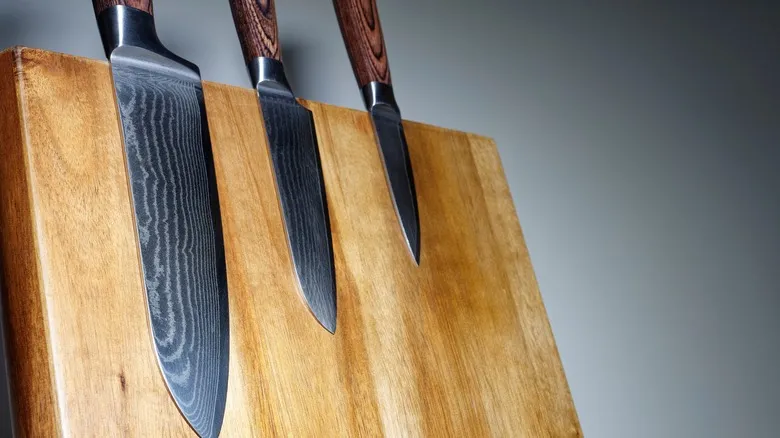
When you're new to cooking, it's wise to limit your kitchen tools to save both money and space—at least for the most part. Ina Garten advises against cutting corners when it comes to knives. Using inferior knives can complicate your cooking tasks and heighten the risk of accidental cuts while preparing meals.
You might be surprised to learn that a sharp knife is actually safer for your fingers. A well-honed knife effortlessly slices through ingredients, requiring minimal pressure from you. In contrast, a dull knife can slip off the food you're trying to cut and onto your fingers. Higher-quality knives are easier to maintain sharpness, leading to more efficient and safer cooking experiences.
You don’t need to break the bank on every type of knife right away. Begin with one high-quality knife and gradually expand your collection as you gain more confidence in the kitchen. Garten recommends starting with four essential knives for home cooks: a serrated bread knife, a large chef's knife, a long, thin slicing knife, and a small paring knife. With these four knives in your arsenal, you'll be well-equipped to create a variety of delicious dishes.
Prepare your ingredients in advance
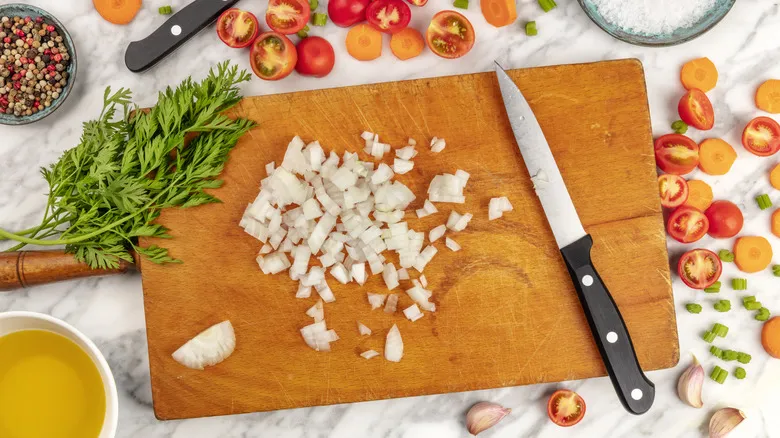
Given the hectic pace of modern life, it’s easy to rush into cooking by jumping straight to the first step of a recipe. However, if you've done this before, you might have experienced the annoyance of discovering halfway through that you're short on an ingredient or that what you thought was baking soda is actually baking powder.
To prevent such kitchen mishaps, Ina Garten suggests preparing all your ingredients before you start cooking. Go through your recipe’s ingredient list, measuring each item precisely into small bowls until everything is ready to be combined into your culinary creation. This practice, known in French as "mise en place," is commonly used in professional kitchens to streamline the cooking process. Additionally, it allows you to tackle the more challenging prep work upfront, letting you relax and enjoy the cooking experience. This approach is particularly beneficial when hosting guests, as it helps minimize stress by allowing you to prepare as much as possible in advance.
Have fun, especially if you're cooking for guests

One of Ina Garten's most valuable pieces of advice for home cooks is to enjoy the process of preparing food, especially when entertaining guests. When you find joy in the kitchen, cooking transforms from a task into a pleasure, making it more likely that you'll continue to do it over time. Garten emphasizes that cooking is a means of connecting with others, and if you're not having fun, your guests will notice.
To truly enjoy cooking, it's best to heed one of Garten's earlier suggestions: keep things simple to minimize stress. Whether you're preparing a meal for your family or a gathering of friends, they aren't expecting a Michelin-starred six-course feast. More often than not, they are looking forward to a relaxed evening filled with good company and flavorful food. Garten advises against trying out new recipes when hosting a dinner party, as the stakes can be high if things don't go as planned. Instead, focus on familiar recipes that you can execute with confidence. So, put on some music while you cook and have a great time preparing your favorite dishes, knowing that a laid-back and enjoyable evening awaits.
Recommended
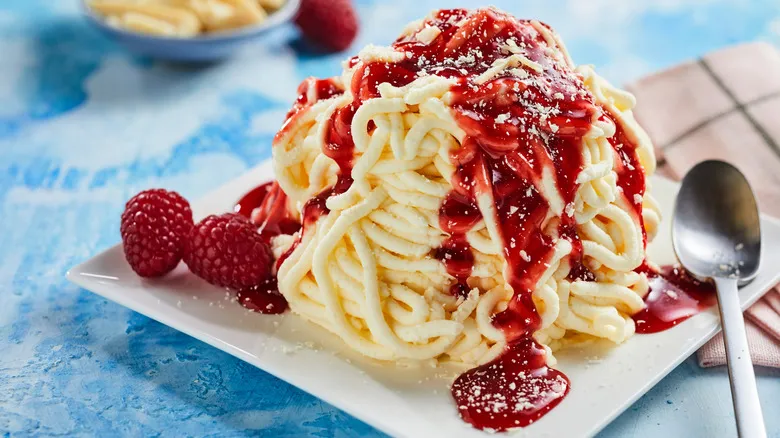
Spaghettieis Is The German Ice Cream Sundae You Can Easily Recreate At Home

Think Twice Before Cleaning Your Ceramic Stovetop With Baking Soda
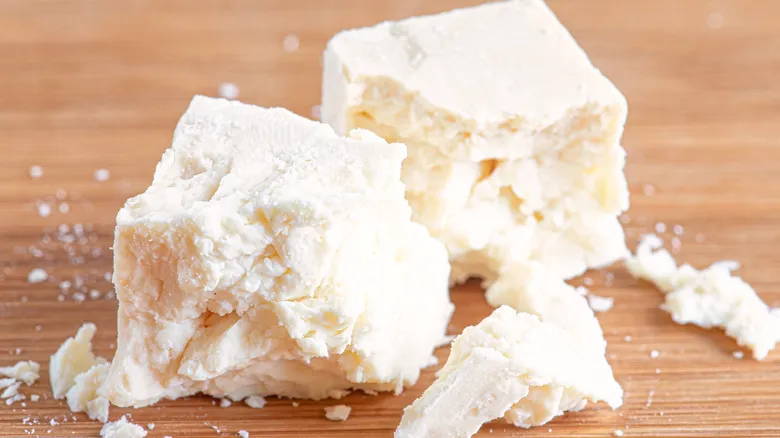
Feta Is The Simple Addition That Transforms Your Sheet Pan Meals

What Is Capicola, And How Does It Stack Up To Prosciutto?
Next up




